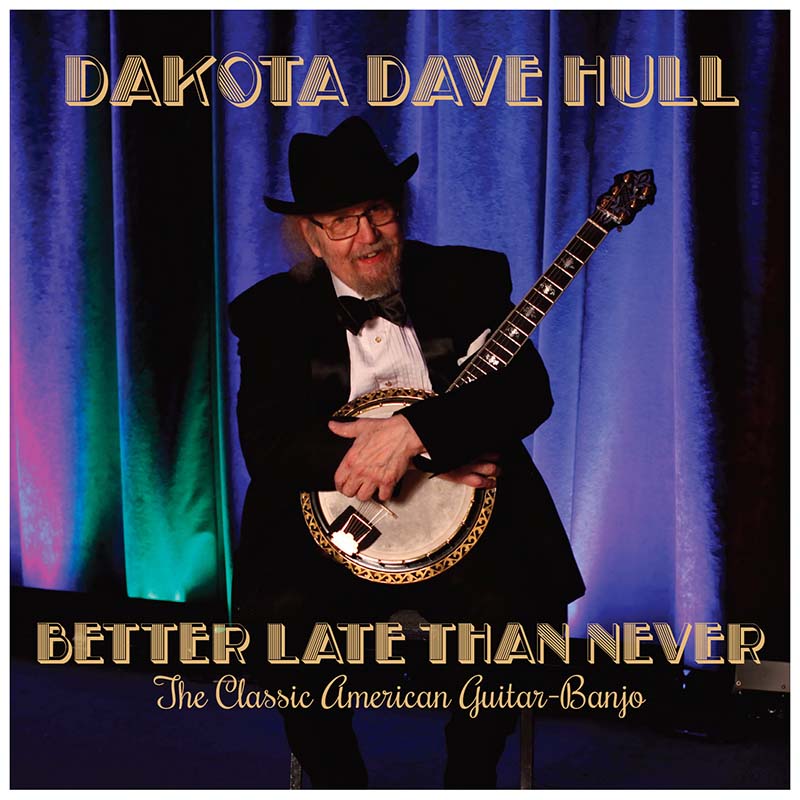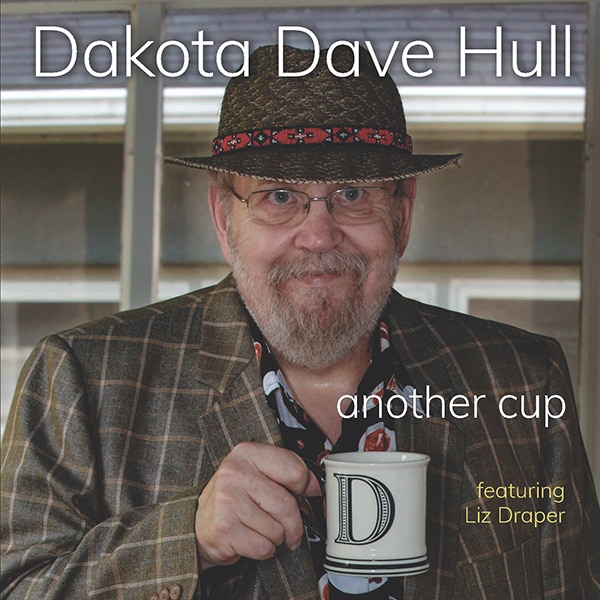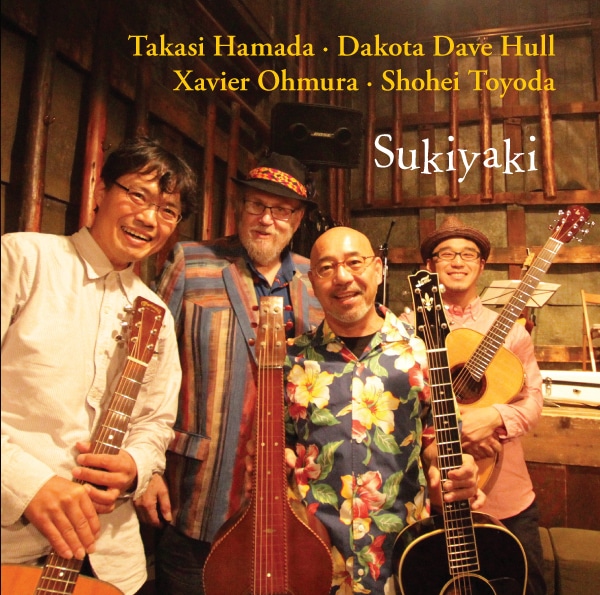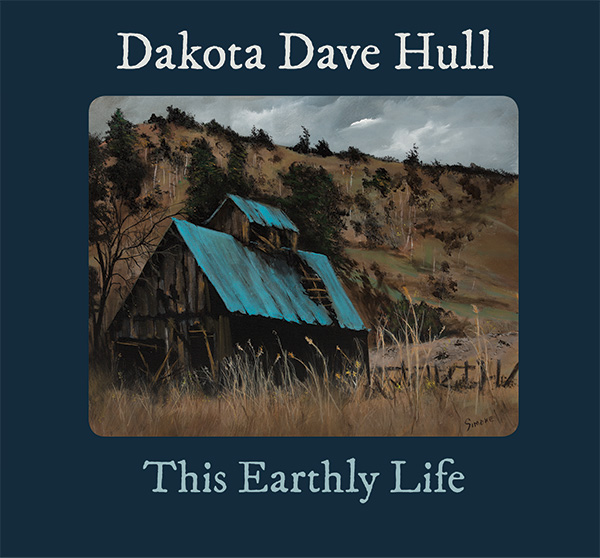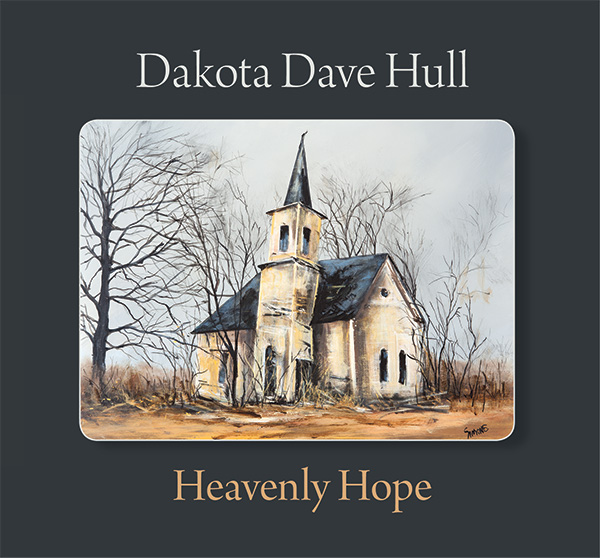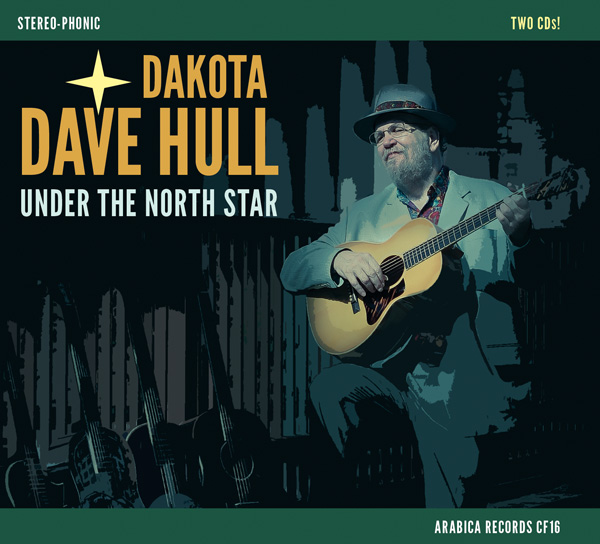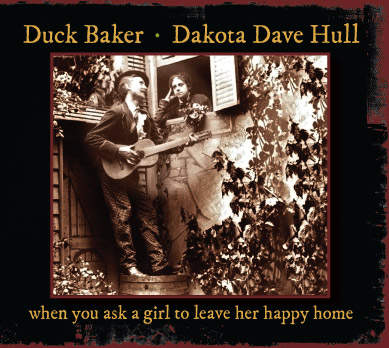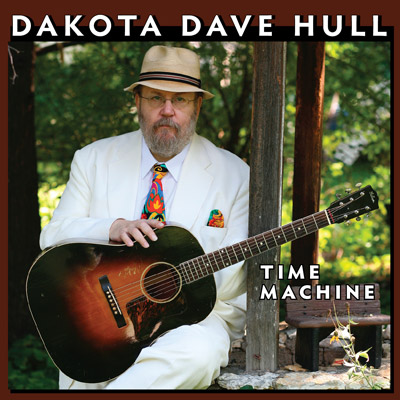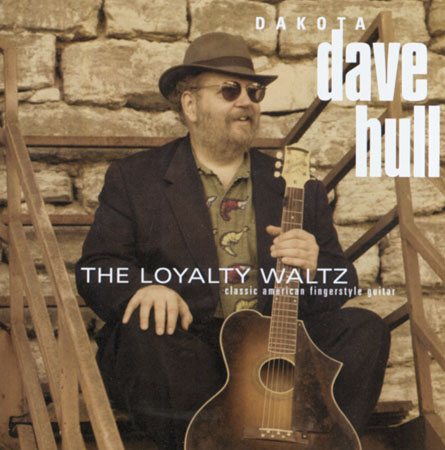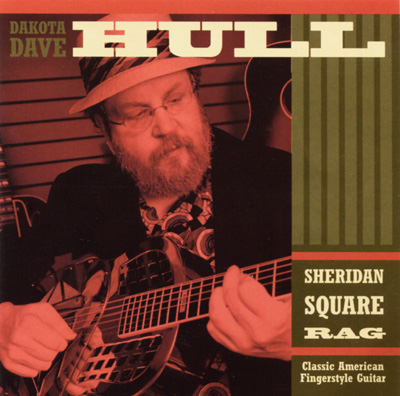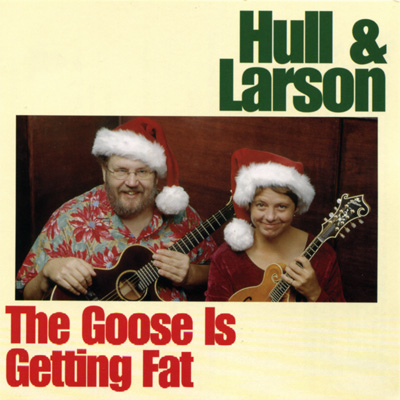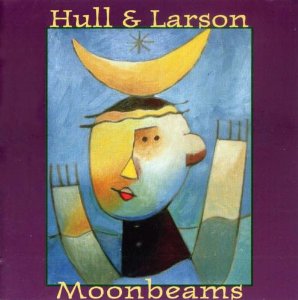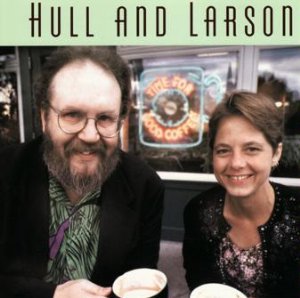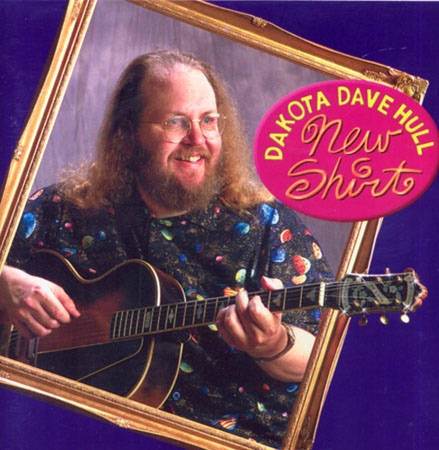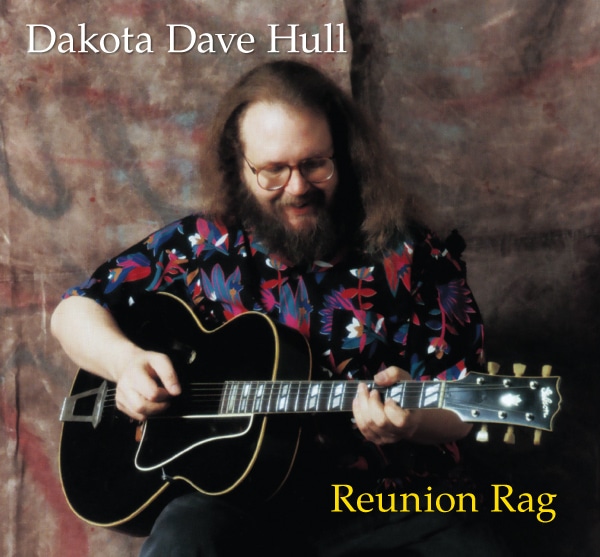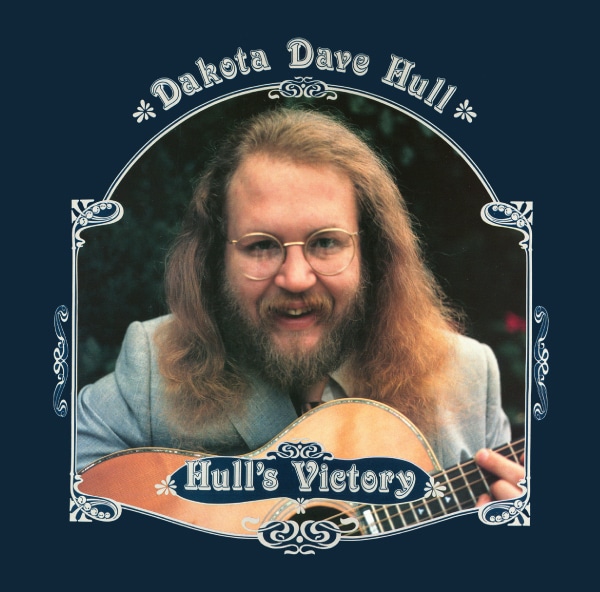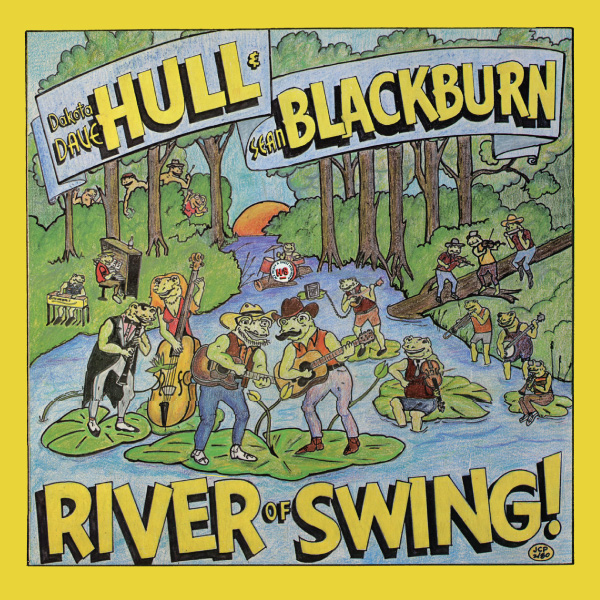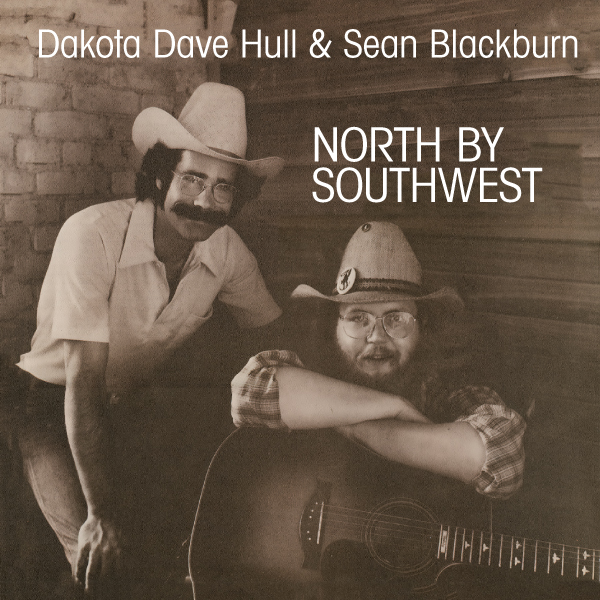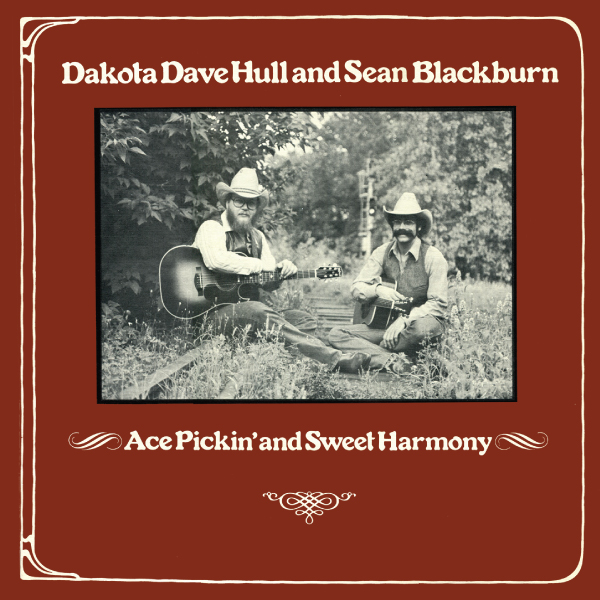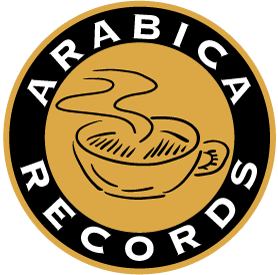Six-Guns and Fountain Pens
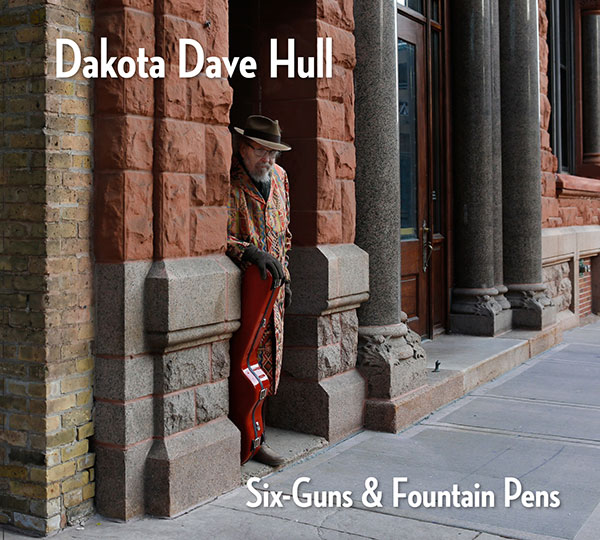
© Ⓟ 2021 · Arabica Records CF-31
$15.00
Track List
- Goodbye Miss Liza Jane (traditional) 2:02
- Fishin’ Blues (traditional) 3:02
- Mississippi Delta Blues (Rodgers, Neville) 3:33
- Georgia on My Mind (Carmichael, Gorrell) 4:19
- Hungry Ghost (Hull) 3:09
- Acres of Clams (Henry) 2:32
- Lorena (Webster, Webster) 2:35
- Morning Grind (Hull) 3:48
- Patriots’ Day (Hull) 3:36
- Sometimes I Feel Like a Motherless Child (traditional) 2:56
- Bonaparte’s Retreat (traditional) 2:50
- Red River Valley (traditional) 3:17
- Little Liza Jane (de Lachau) 3:13
- We Shall Overcome (traditional) 2:51
Credits
- Produced by Dakota Dave Hull
- Executive Producers: Kristine Smith, Xavier Ohmura, Cheryl Hall
- Recorded by Dave Hull at Arabica Studio, Minneapolis
- Mixed and Mastered by Miles Hanson, Steve Wiese, and Dakota Dave Hull at Creation Audio, Minneapolis
- Graphic Design by Karin Preus/Acorn Design
- Photographs by Larry Marcus, Photographer
Dakota Dave Hull
Classic American Fingerstyle Guitar
Notes from Dave
A year or so ago I had a great idea: record a live CD in a studio with an audience. Plans were made, money was raised through Kickstarter, dates were booked, posters were printed, tunes were composed and learned and the media was notified. Then the pandemic hit. Lockdowns, fear, travel restrictions all played a part. The live album that was to have been recorded in April and been released by September was on hold. At some point in the early summer I decided that I’d better get to work in the studio and come up with something for the folks who made this happen.
It wasn’t quite as simple as just recording studio versions of everything. Some of the tunes that would have been on the live recording had been recorded before. It wouldn’t do to just arbitrarily re-record them in the studio. A live performance recording is one thing, but if I was going to morph to a studio project I had to come up with some additional material. I’m always listening and playing so I had that more or less covered but it does take some time to whip ‘em into performance shape. Well, I am happy to say that all of that has been done, and the results are right here. Hopefully a live recording is in the not-too-distant future, too.
“As through this world I’ve wandered I’ve seen lots of funny men. Some will rob you with a six-gun, and some with a fountain pen.” —Woody Guthrie
- Goodbye Miss Liza Jane(played on the Fairbanks Jumbo, drop D tuning) This tune comes from Charlie Poole and his North Carolina Ramblers, one of my all-time favorite bands and one of the deepest wells in the American tradition in my not-so-humble opinion. I was a good man while I had the dough.
- Fishin’ Blues (National Style N piccolo guitar, standard tuning) Texas hobo and songster Henry Thomas recorded this song of nebulous origins in 1928. A staple of the folk revival, it was covered by Mike Seeger, Taj Mahal, the Jim Kweskin Jug Band, and any number of other worthy folks. Any fish’ll bite if you got good bait.
- Mississippi Delta Blues (Fairbanks Roy Smeck Radio Grande, standard)My late partner Sean Blackburn used to sing the heck out of this 1933 Jimmie Rodgers song. I can’t play it without hearing his voice in my head. With friends around and even pals that I know are true, still I’m lonely, homesick and blue.
- Georgia on My Mind (National Style 1, standard) From the pen of the immortal Hoagy Carmichael, complete with his seldom-performed introduction. It’s impossible to top Ray Charles’ outstanding version, but it’s still a lot of fun to play. Still in peaceful dreams I see the road leads back to you.
- Hungry Ghost (National NRP fretless, drop D) An original piece. The hungry ghost is insatiable.
- Acres of Clams (National Raw Brass, drop D) A 19th Century number by Francis D. Henry, also known as “The Old Settler’s Song,” the tune itself was borrowed from the traditional “Rosin the Beau”. No longer the slave of ambition I laugh at the world and its shams as I think of my present condition surrounded by acres of clams.
- Lorena (Fairbanks Nick Lucas, standard) Henry D. L. Webster and Joseph Philbrick Webster (apparently no relation) wrote this lament about unrequited love in 1857. It became a favorite of Civil War soldiers on both sides of the conflict and was known from coast to coast. The late John Hartford recorded it in the 1970s, giving it new life. I had the honor of playing it with him once at a Canadian folk festival. The hopes that could not last, Lorena, they lived, but only lived to cheat.
- Morning Grind (New Era Big Boy, standard) Every day I wake up in the morning and grind and brew the coffee. Then I get to drink it. Guitar playing is a lot more gratifying when one is caffeinated. I dedicate this one to my friends, the crew at True Stone Coffee Roasters in St. Paul.
- Patriots’ Day (Guild Mark IV, standard) Another original. Patriots’ Day is celebrated the third Monday in April in several states in the Northeast to commemorate the first battles of the Revolutionary War.
- Sometimes I Feel Like a Motherless Child (Brentrup Grand Concert, standard) A spiritual from the days of slavery. It’s hard to imagine children being taken from their parents and the hopelessness that those families must endure. (Sorry. I couldn’t resist the unsubtle sarcasm.) The song rose to prominence in the 1870s when the Fisk Jubilee Singers incorporated it into their repertoire. In her 20th-Century prime it was widely associated with Marian Anderson. Odetta recorded what many (including the undersigned) consider the definitive version at her 1963 Carnegie Hall concert. Sometimes I feel like I’m almost gone, a long ways from home, a long ways from home.
- Bonaparte’s Retreat (National NRP fretless, G tuning) I’ve been playing this tune for years and even recorded it once before. When I got the fretless National, I thought I’d like to hear what it sounded like on that guitar. Turns out it was big fun and, in my considered opinion, worth recording again. This version draws from both tradition and country singer Pee Wee King, who also wrote “Tennessee Waltz.” In 1950, creating a hybrid that would ride the country and (in Kay Starr’s version) pop charts, King added both lyrics and a musical bridge taken from “Little Egypt” (named after a belly dancer briefly famous for her performances at the 1893 Chicago World’s Fair). Hope you like it. It’s one of the few tunes I do in G tuning.
- Red River Valley (Hoffman Baritone, drop A—the baritone equivalent of drop D tuning) I grew up (or at least I spent my younger days) within walking distance of the Red River, so this tune has always had special meaning for me. Another 19th-Century song, its origins have been traced to Manitoba, North Dakota, and Minnesota, possibly as early as 1870; some have speculated it’s even older. It shows up in different geographical locations, too—“Bright Mohawk Valley,” “Bright Sherman Valley,” and “Bright Laurel Valley,” for example. The cowboy-song variant, which arrived a little later, sets it in the Red River Valley of Texas. Carl T. Sprague, who cut the first commercial recording in 1925, titled it “Cowboy’s Love Song.” Jules Verne Allen had a successful 78 of it two years later. In 1927 Riley Puckett and Hugh Cross released it under the now-familiar title. They say you are taking the sunshine that has brightened our pathways awhile.
- Little Liza Jane (National Raw Brass, drop D) First published in 1916 as a “southern dialect song” by Countess Ada de Lachau, the song’s rhythms and probable melody go back much further, likely to the antebellum minstrel stage. It’s one of those rare tunes that show up in most American traditions: Bluegrass, Blues, Old Timey, Jazz, Western swing, and who knows where else. This version takes its inspiration from Earl Fuller’s Famous Jazz Band’s 1917 recording, including the seldom-heard third part that features a quote from “The Minstrel Boy.” Come my love and live with me; I will take good care of thee.
- We Shall Overcome (Fairbanks Roy Smeck Radio Grande, standard, capo on 3) An anthem for once and always. Deep in my heart, I do believe that we shall overcome some day.
—Dakota Dave Hull
Kind Words from Jerome Clark
As far as I know, no legends assert that Dakota Dave Hull attained his guitar-playing skills at a crossroads at midnight. Then again, you never know. I do know that when I met him, when I was two decades into whatever life had in store and he was imprisoned in high school across the Red River in Fargo, he had a guitar in hand.
In common with the youthful Robert Johnson, he was, shall we say, not a master of same. The way time passes—faster and faster when you just want it to slow down, dammit—I can almost believe that what followed was a supernatural transition that played out over just a few weeks between then and now. These days he’s judged by the smart and the knowledgeable to be among the leading acoustic-roots guitarists in the land. In fact, they know about him far beyond our borders, too.
If Dave has sold his immortal soul to get to where he is today, I don’t want to know about it. If I did, I’m pretty sure I wouldn’t tell you, in the interest of maintaining the all-but-lifelong friendship I’ve enjoyed with this hugely entertaining specimen. I don’t mean just musically entertaining, though God knows that applies. I allude as well to the quantity of belly-rattling laughs and dumb jokes—the dumber the funnier, actually—that we’ve shared over the decades. In fact, I happen to know the precise number: countless. And many of them are the same jokes. There have also been the other times, the not-so-happy ones when I needed his friendship and it was there every time. As pals go, Dave is tops.
I am not a musician, just a guy who plays the stereo like a champ, but I’ve loved the music of the grassroots ever since my dad gave my very young brother and me cheap paper 78s of “Arkansas Traveler” and “The Old Chisholm Trail.” I didn’t know about “folk songs” then, of course, I just knew there was something really special about stuff like this. I still do, maybe more so as I hear it from this side of life’s other shore. I feel lucky to share the world with it.
Traditional music and its relatives have been integral to my friendship with Dave. We learned—and are still learning—about them together. It has never ceased to be something we talk and think about. They remain a constant wonder, something he and I will tire of only when there are no more breaths to expel and conversation is forever silenced.
Unlike me, Dave gets to feed and nourish the tradition, to plumb and expand its truths. At the core of his talent is an ability to detect something new in the old things, proving that if you’re a gifted player and a deep listener, you will hear what is still unsaid. If you don’t know what I’m talking about, go directly to “We Shall Overcome” and then turn back to everything else here. Sad, moving, or rambunctious, it will make the world bigger for you.
Thanks for that, my friend, and for all the entertainment.
—Jerome Clark
